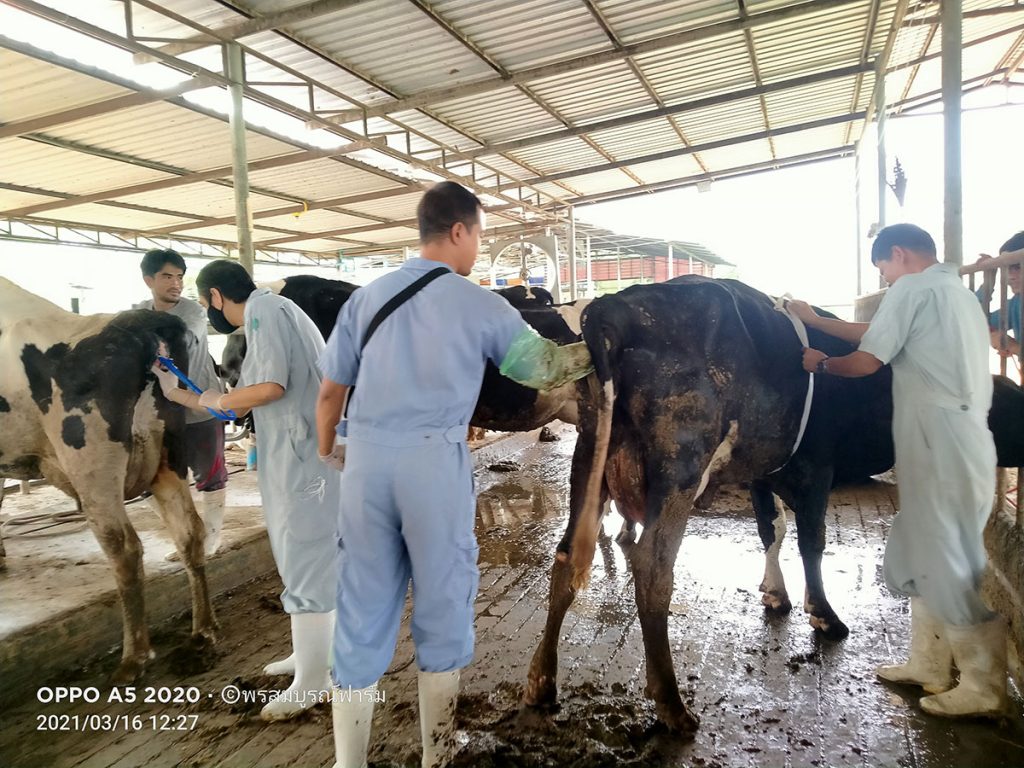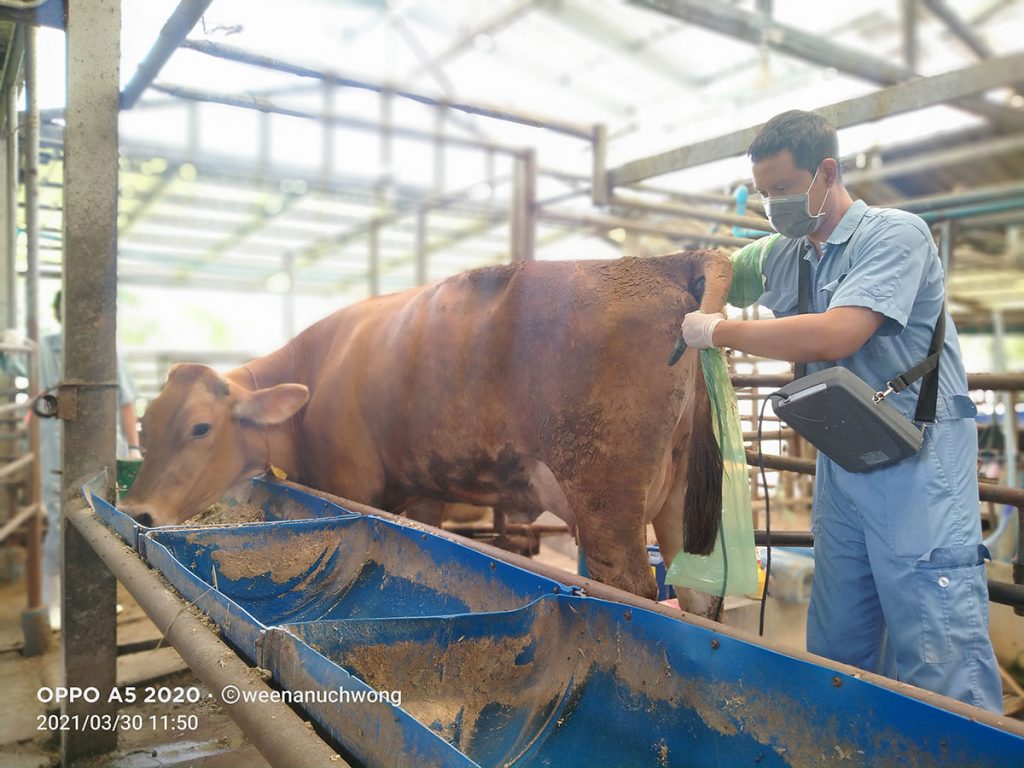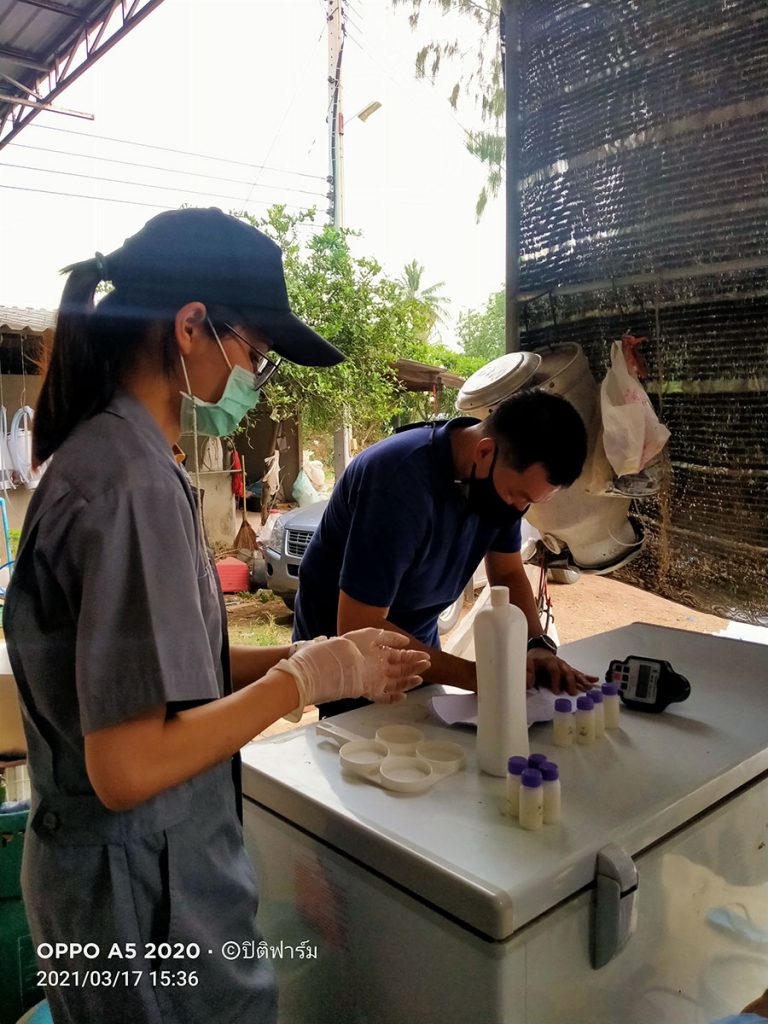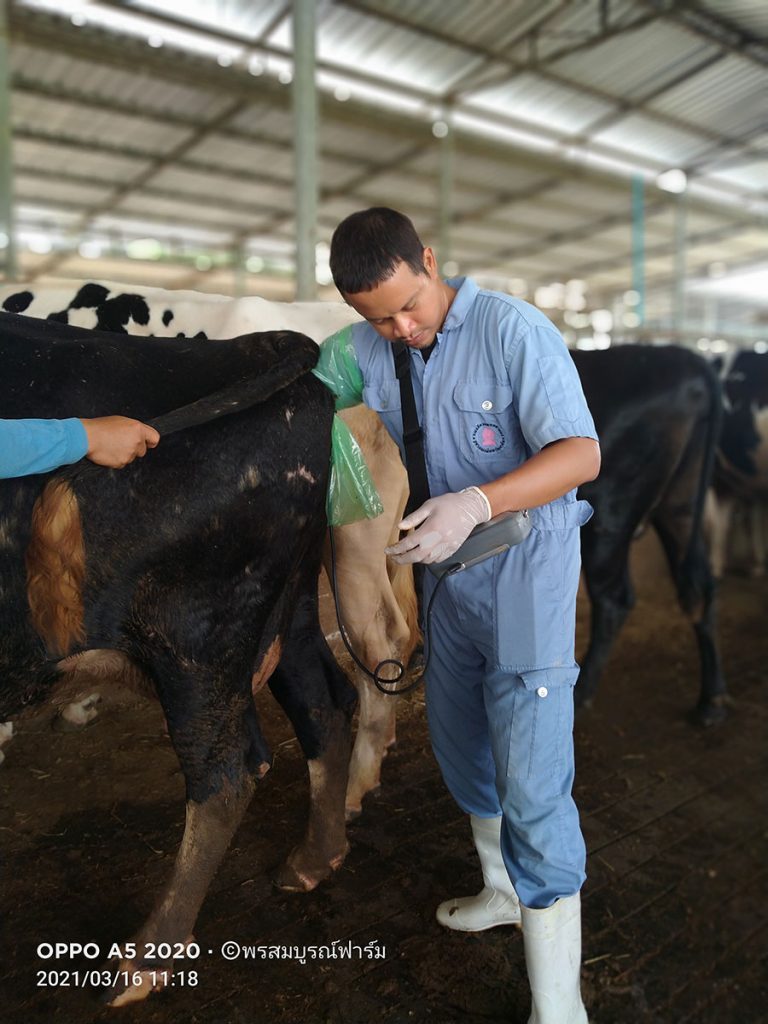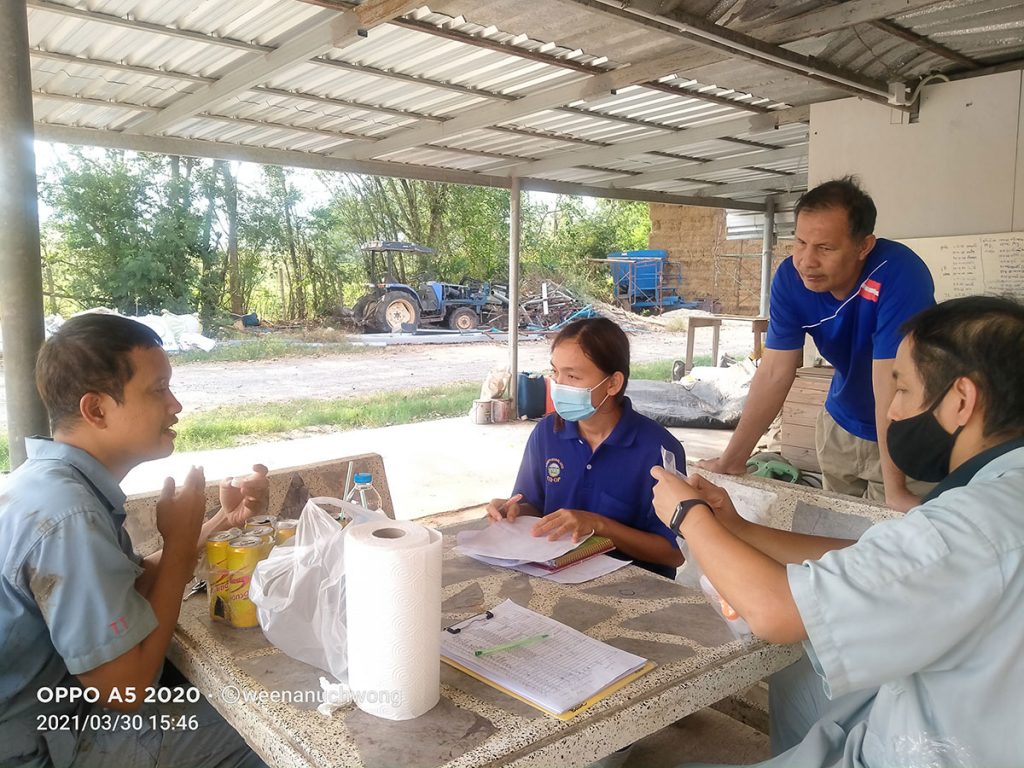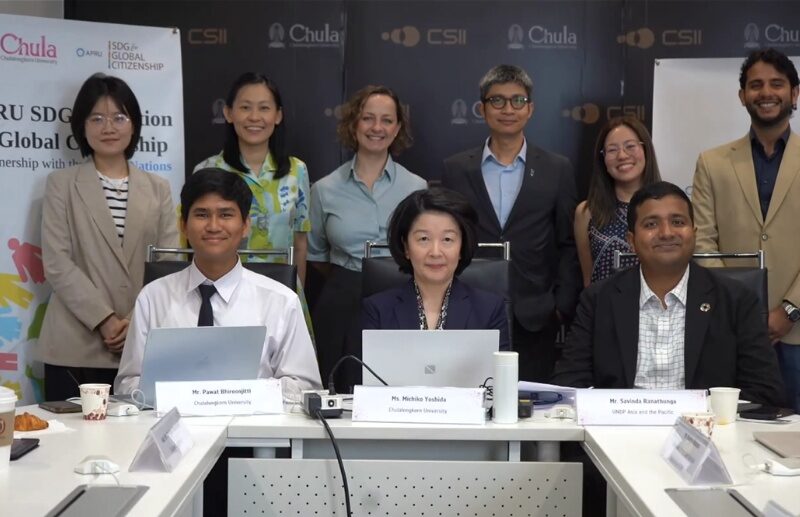Good news for Thai dairy farms! Chulalongkorn University sets up a research center to transfer technology, improving Thai milk quality to be the best in ASEAN.
In 2020, Thailand’s domestic dairy cows have the capacity to produce raw milk at approximately 3,500 tons per day from about 310,000 cows nationwide. The main sources of raw milk production are in Nakhon Ratchasima, Saraburi, Lopburi, Chiang Mai, Ratchaburi and Prachuap Khiri Khan. The proportion of raw milk usage for school milk versus commercial milk is 30 : 70, raw milk sold by farmers in the market during June 2020 is averaged at 18.50 baht/kg. Thai dairy cows are popular with trading partners that are ASEAN members, the partners also want to import dairy cows from Thailand as the breed has been developed to be suitable for the tropical climate of Southeast Asia. As a result, Thailand is able to export 840 dairy cows per year, while Thailand’s main competitors in the ASEAN region are Australia and New Zealand, which export dairy products and also expand the production base to compete in the Thai market.
Livestock Economic Research Group has studied and disclosed the conditions and factors of the obstacles affecting the competition of Thai dairy industry, focusing on 3 key issues, namely 1) high cost of milk production for Thai dairy farmers as the quantity of both concentrate feeding formula and roughage is insufficient and the quality is also not suitable, 2) Thai dairy farmers transport milk in high cost, the transportation is also causing milk quality problems, and 3) the economic stagnation caused by the epidemic of COVID-19 which affect the consumption of dairy products.
For these reasons, Thailand therefore needs to accelerate the improvement and development of milk production structures and encourage dairy farmers to grow forage crops that are suitable for domestic dairy cow. Hence, it is considered another important role of Chulalongkorn University, who is operating the Centre of Learning Network for Region (CLNR) located in Saraburi Province, to set up a research and technology transfer center for the development of dairy cow farming in the humid tropics. Faculty of Veterinary Medicine, Chulalongkorn University, Kaeng Khoi district, Saraburi province branch has collaborated with government agencies, such as the Area-based Program Management Unit (PMU A.), who is supporting the research grants for area development research funds, the collaborating parties also included private entities, such as CP-Meiji Co., Ltd., including five cooperatives and raw milk collection centers, all join forces to become partners in the development network to integrate and transfer knowledge from academics as well as a variety of innovations to apply for sustainable dairy farming development.
With the readiness of all aspects; academic, research, laboratory on animal health, milk quality and animal feed quality, including an academic service unit on dairy cow in the Saraburi area, Faculty of Veterinary Medicine, Chulalongkorn University, therefore, has implemented the “Upgrading the productivity of dairy farms through innovative veterinary services” project to create collaboration between academics, veterinarians and related organizations, in order to harness the potential and efficiency of dairy farmers in the areas that dairy farming is densest in Thailand and prepping the farmers to adapt to challenges and overcome obstacles in applying agricultural technology and innovations to improve production efficiency and raw milk quality through knowledge management processes based on real-world situations and convey lessons to enable the application of knowledge together with technology and innovation to enhance agricultural competitiveness. By changing the traditional production system to the “Smart Farming”, the change will enable the agricultural community to have career stability, increase income, and also create a network of academic cooperation for knowledge exchanging between the academic sector and business sector, and develop agriculture as a prototype of “Innovative dairy cow veterinary services for the community” to enhance production efficiency of dairy farms.
The project has selected 6 prototype farmers from 5 farmer organizations, 2 of which are dairy cooperatives, 3 private milk collection centers in Saraburi and Nakhon Ratchasima provinces. The selection is based on their interest in participating in the project and willing to cooperate. All prototype farmers will receive veterinary services from the Mobile Dairy and Cattle Veterinary Clinic, Livestock Hospital, Faculty of Veterinary Medicine, Chulalongkorn University who will visit the farms to solve the issues of reproductive performance of dairy cows, monitor mastitis and drug resistance of the causative organisms, improve breast health and milk quality, including animal feed quality analysis to improve feed management for maximum efficiency, and apply knowledge from researches to solve the effects of heat stress to help increase farm productivity.
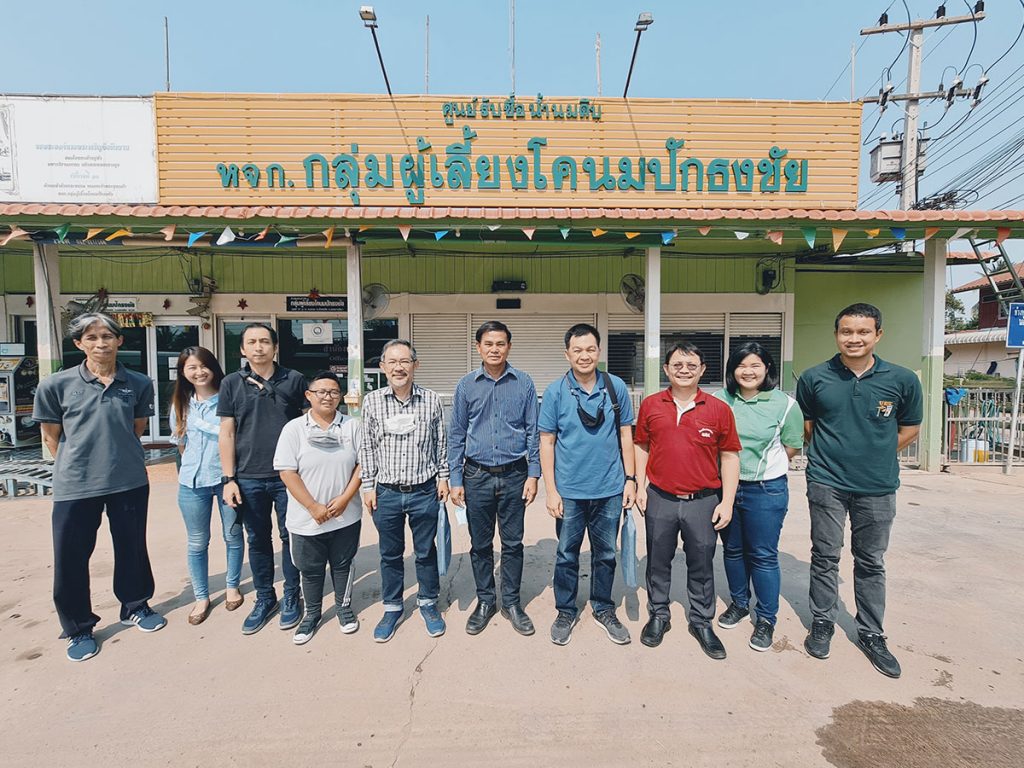
Farmers will also learn to record farm data in a database developed by the faculty. This makes it possible to use various data and laboratory results to monitor the health of dairy cows on the farm as well as to make decisions that will improve farm efficiency. The academics will transfer the knowledge to the farmers through monthly performance reports and will also receive supports regarding the development of agricultural extension personal from Future Farmers of Thailand, both dairy cooperatives and the raw milk collection center will be developed through collaboration with academics, hence, the project will extend its effect to a wider range of farmers, the trading partners will receive raw milk with a higher quality, and thus, improving the quality of processed dairy products for export.
The effect will benefit not less than 200 households in Saraburi province, Nakhon Ratchasima, and nearby areas, of which are dairy farms, private milk collection centers, and dairy cooperatives in the area. The exchange of experiences from farmers will help expedite the development processes and prepare them for Smart Farm, a prototype of Precision Dairy Farming for the community and Thailand.
BY
Faculty of Veterinary Science, Chulalongkorn University
Center of Learning for the Region, Chulalongkorn University
Previous related articles:
Related articles:
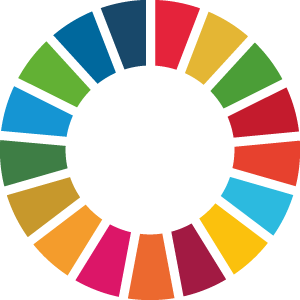
Related SDGs
Others
Chula Asian Research Center for Migration’s Reports
Asian Research Center for Migration, Chulalongkorn University collaborating with International Organization for Migration (IOM), conducted this research and completed a publication in 2019. This aimed to contribute towards the Governments of Thailand and Cambodia in their efforts to develop transparent and rights-based migration policies and programs which maximize positive contributions of migration to the economies and societies of both countries.

